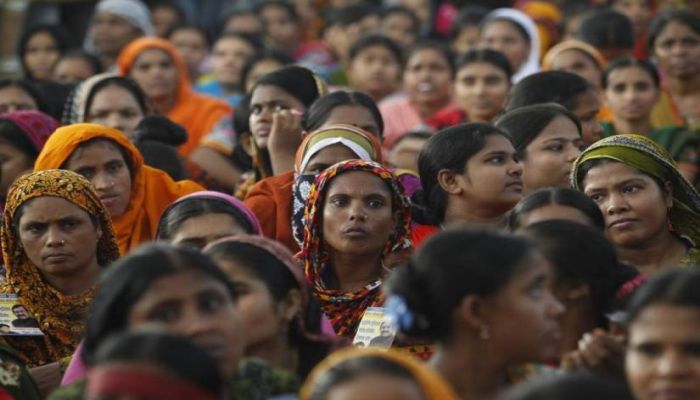
Desk Report
Publish: 23 Feb 2020, 02:39 pm

The first woman ambassador to Bangladesh in the Middle East hopes that her nomination would support women migrant workers in the country, with a plan to create a shelter for women workers fleeing violence or harassment at the Jordanian embassy.
Nahida Sobhan, 52, a former foreign service officer who has served in Rome, Kolkata, and Geneva, is launching this week as an ambassador to Jordan, hiring thousands of Bangladeshi women workers on a monthly basis for her garment industry and as maids.
Bangladesh ranks among the top countries that send its citizens to work overseas, with around 700,000 Bangladeshis finding jobs every year abroad, but some end up cheating and becoming victims of abuse after job promises. "There are certain problems that women migrants face and I will try my best to solve them," Sobhan said, adding that she was keen to establish a shelter at the Bangladesh embassy.
"When you are serving ... it doesn't matter whether you are a man or a woman ... but it is true that if a Bangladeshi woman falls in trouble, she will be more comfortable to open up to a woman," she told the Thomson Reuters Foundation.
Jordan is home to more than 100,000 female Bangladeshi workers, mostly poor women from rural areas, and is the second-ranking destination for Bangladeshi women workers after Saudi Arabia, according to government data.
But recruitment is largely carried out by unofficial brokers, which opens the door to trafficking and exploitation.
Last year at least 1,500 Bangladeshi women returned home from Saudi Arabia after being abused, an increase from 2018 when about 1,300 returned, according to Bangladeshi charity BRAC.
Even though activists and government officials said they received far fewer complaints from Bangladeshi migrants in Jordan compared to Saudi Arabia, neither the government nor charities have recorded the numbers returning from Jordan.
"In 2019 we received about 20 to 25 complaints from Bangladeshi workers in Jordan and they were mostly related to wage issues. They were not paid properly," said Lily Jahan, chairman of BOMSA, a Bangladeshi migrants rights group.
"Some of them were beaten when they protested. We informed the government about these cases."
Sobhan described the labor laws in Jordan as "supportive" and said migrants didn't face "severe difficulties" there but this would be a focus of her work.
"I won't say that there are severe difficulties, but there still are certain issues and I will try my best to solve these," she said in an interview at the Ministry of Foreign Affairs office in Dhaka before leaving for Jordan.
Remittances from migrant workers are key for Bangladesh's economy, making up the second-highest source of foreign currency earnings after clothes manufacturing, government data shows.
Sobhan, whose previous role was as the director-general of United Nations wing of the foreign office, said the government wanted to promote as many female ambassadors as possible.
"Currently, there are about seven female ambassadors out of 50. The message with my appointment is that things are changing for the better and things will continue to change," said Sobhan.
Source: Reuters
Subscribe Shampratik Deshkal Youtube Channel
© 2024 Shampratik Deshkal All Rights Reserved. Design & Developed By Root Soft Bangladesh